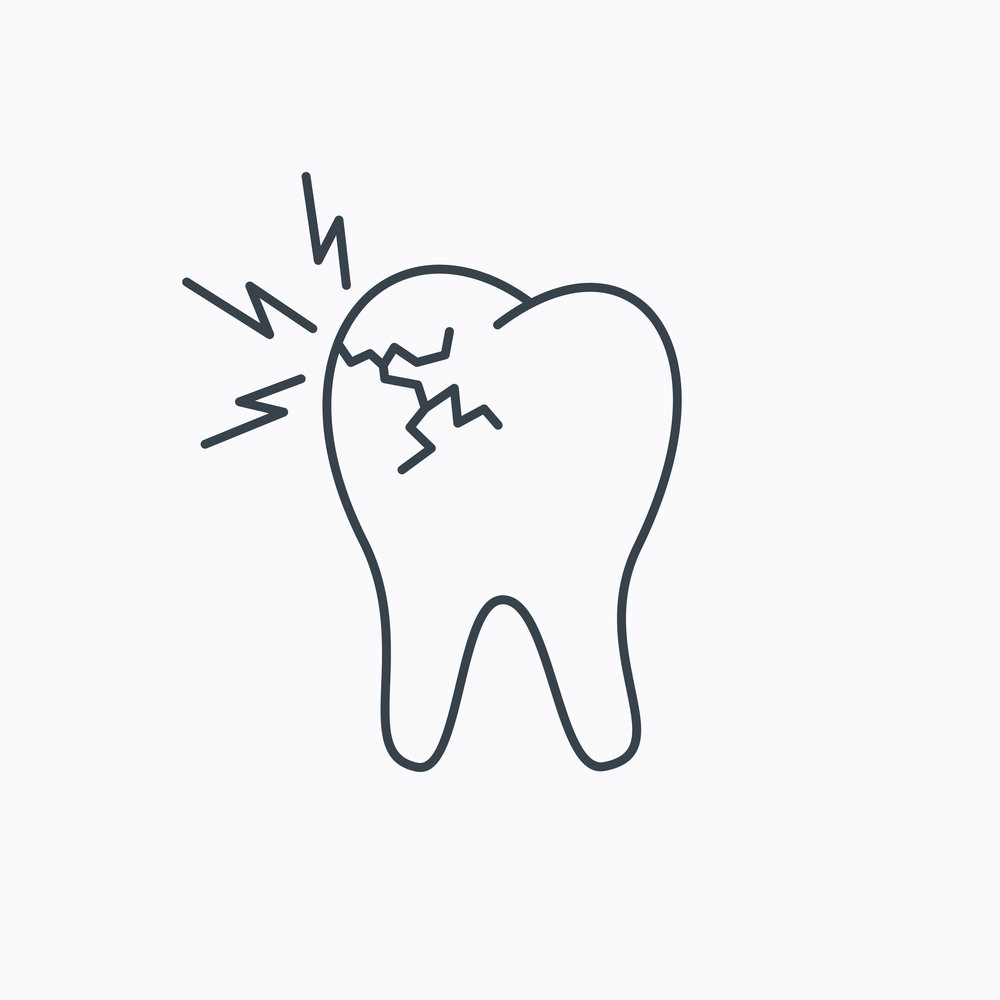
If you’re reading this, you’re likely in the midst of an emergency dental situation. Accidents happen, and a cracked molar is more common than you may initially think. Your molars are particularly vulnerable to cracks because they absorb most of the force while you chew, and bad habits like biting into ice or hard candy can significantly increase your risk.
Our team at Hinsdale Dentistry frequently saves cracked, chipped or broken molars and other teeth, and we’re here to help you. Scheduling a dental appointment right away will enable your dentist to determine how severe the crack is and if the tooth can be saved.
What To Do If You Crack a Molar
When it comes to a cracked tooth, there are a variety of causes. From not wearing your mouthguard while playing sports to biting down on hard foods, your molars are more susceptible to breaks and cracks. Regardless of how you cracked your tooth, the most important thing you can do afterward is to contact your dentist right away. Your dentist will be able to determine if a crack is only cosmetic or if a severe fracture occurred.
How To Treat a Cracked Tooth
We are typically able to accommodate same-day appointments for dental emergencies. However, until you can be seen, we advise patients to rinse their mouths with a warm saltwater rinse gently. One cup of tepid water mixed with a ½ teaspoon of salt will clean your teeth to help prevent infection. It is also recommended to avoid chewing on the side of your mouth where the cracked tooth is located.
H3: When Professional Treatment Is Necessary
There are several treatment options for saving a cracked tooth. Depending on the severity of the damage, your repair may be superficial and cosmetic or more severe. Our team will carefully examine the crack and determine the best course of action for repairing the tooth.
Minor Cracks. For small cracks that are less severe, dental bonding may be used to fill in the crack and fortify your tooth against further damage. Dental bonding is an excellent option for cosmetic repairs.
Painful Cracks. If your cracked tooth is causing you pain and discomfort when you bite down, the mastication pressure is likely separating the pieces of your tooth. This type of separation causes the tissue and nerve endings inside your tooth to become irritated. Painful cracks often require the cracked tooth to be covered with a dental crown to restore the look and functionality of the tooth.
Severe Cracks. For critical situations, root canal therapy may be the most beneficial repair option if bacteria have gained access to the inner portion of your tooth from the crack. During root canal therapy, any damaged or infected tissue will be removed, and your tooth will then be topped with a filling or dental crown. Not only does root canal therapy protect your tooth from additional damage, but the functionality of the tooth will also be completely restored.
Preventing Cracked Teeth
When it comes to preventing cracked teeth, there are simple measures that can be taken to avoid another injury. A custom night guard can be created for you if teeth grinding was the cause of your cracked tooth. Additionally, it’s always recommended to avoid chewing on ice, hard candies, and not utilizing your teeth as tools. Keep your teeth healthy and strong with daily brushing, flossing, and bi-annual dental cleanings.
Take Swift Action ASAP
If you have a cracked tooth, our Hinsdale dental office will do everything we can to save your tooth. Emergency appointments should be scheduled right away to avoid the risk of infection or further damage. Call Hinsdale Dentistry with any questions regarding a cracked molar or another tooth.